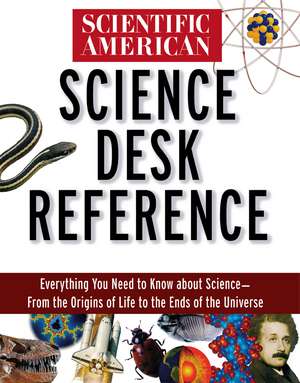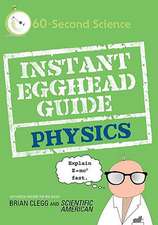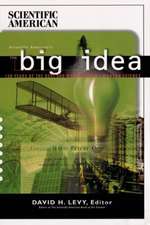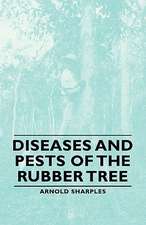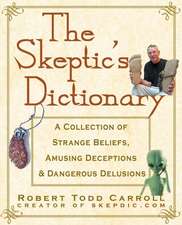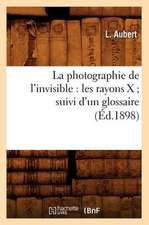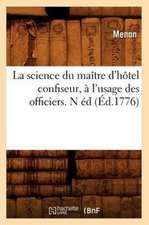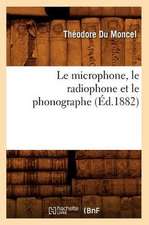Scientific American Science Desk Reference: Scientific American
Autor Scientific American Magazine, Scientific Americanen Limba Engleză Paperback – 31 aug 1999
| Toate formatele și edițiile | Preț | Express |
|---|---|---|
| Paperback (1) | 312.11 lei 3-5 săpt. | |
| Wiley – 31 aug 1999 | 312.11 lei 3-5 săpt. | |
| Hardback (1) | 376.32 lei 3-5 săpt. | |
| Wiley – 26 sep 1999 | 376.32 lei 3-5 săpt. |
Preț: 312.11 lei
Nou
Puncte Express: 468
Preț estimativ în valută:
59.72€ • 62.35$ • 49.43£
59.72€ • 62.35$ • 49.43£
Carte disponibilă
Livrare economică 14-28 martie
Preluare comenzi: 021 569.72.76
Specificații
ISBN-13: 9781620457184
ISBN-10: 1620457180
Pagini: 704
Dimensiuni: 211 x 279 x 36 mm
Greutate: 1.63 kg
Editura: Wiley
Seria Scientific American
ISBN-10: 1620457180
Pagini: 704
Dimensiuni: 211 x 279 x 36 mm
Greutate: 1.63 kg
Editura: Wiley
Seria Scientific American
Textul de pe ultima copertă
Who names newly discovered planets? What exactly are black holes? Where are there the most earthquakes? When did the first Homo sapiens walk the earth? Why is the night sky dark? How does the fluoride in toothpaste prevent cavities? Since 1845, Scientific American has answered questions and provided the best information available in all areas of science. Now, Scientific American is proud to present an accessible, one-volume reference covering all the sciences. Whether you want to examine the tiniest microbes, the properties of the earth's core, or the farthest reaches of space, this handy desk reference is the resource to turn to for the answers you need. - Over 500 biographies of key science figures - Thousands of glossary terms - Hundreds of useful Web sites - Tables, charts, diagrams, and illustrations - Sidebars featuring fascinating facts, mnemonic aids, and quizzes - Essays exploring ideas in-depth
Descriere
Descriere de la o altă ediție sau format:
Who names newly discovered planets? What exactly are black holes? Where are there the most earthquakes? When did the first Homo sapiens walk the earth? Why is the night sky dark? How does the fluoride in toothpaste prevent cavities? Since 1845, Scientific American has answered questions and provided the best information available in all areas of science. Now, Scientific American is proud to present an accessible, one–volume reference covering all the sciences. Whether you want to examine the tiniest microbes, the properties of the earth’s core, or the farthest reaches of space, this handy desk reference is the resource to turn to for the answers you need. Over 500 biographies of key science figures Thousands of glossary terms Hundreds of useful Web sites Tables, charts, diagrams, and illustrations Sidebars featuring fascinating facts, mnemonic aids, and quizzes Essays exploring ideas in–depth
Who names newly discovered planets? What exactly are black holes? Where are there the most earthquakes? When did the first Homo sapiens walk the earth? Why is the night sky dark? How does the fluoride in toothpaste prevent cavities? Since 1845, Scientific American has answered questions and provided the best information available in all areas of science. Now, Scientific American is proud to present an accessible, one–volume reference covering all the sciences. Whether you want to examine the tiniest microbes, the properties of the earth’s core, or the farthest reaches of space, this handy desk reference is the resource to turn to for the answers you need. Over 500 biographies of key science figures Thousands of glossary terms Hundreds of useful Web sites Tables, charts, diagrams, and illustrations Sidebars featuring fascinating facts, mnemonic aids, and quizzes Essays exploring ideas in–depth
Cuprins
Measurement.
Mathematics.
Chemistry.
Physics.
Astronomy.
Earth Science: Evolution and Structure of Planet Earth.
Earth Science: The Atmosphere and the Hydrosphere.
Environment and Ecology.
Biology.
The Animal Kingdom.
Plant Kingdom.
Human Body.
Health and Disease.
Computer Science.
Technology.
Discoveries, Inventions, and Prizes.
Index.
Mathematics.
Chemistry.
Physics.
Astronomy.
Earth Science: Evolution and Structure of Planet Earth.
Earth Science: The Atmosphere and the Hydrosphere.
Environment and Ecology.
Biology.
The Animal Kingdom.
Plant Kingdom.
Human Body.
Health and Disease.
Computer Science.
Technology.
Discoveries, Inventions, and Prizes.
Index.
Notă biografică
Scientific American is one of the world′s leading science and technology publications. In English, it reaches more than 3 million people around the world by subscription, newsstands, and online.
